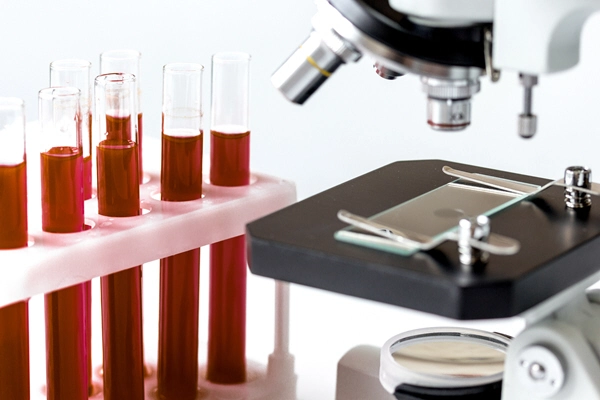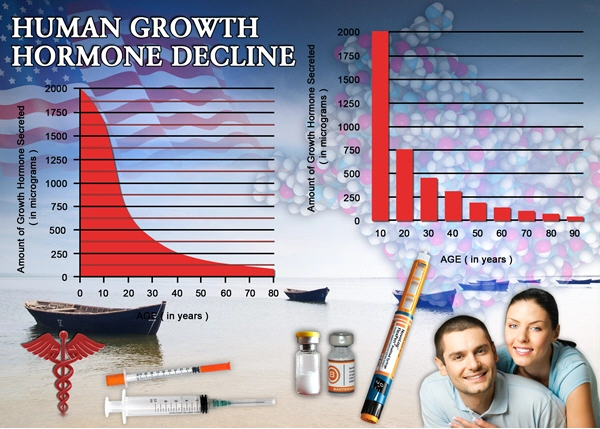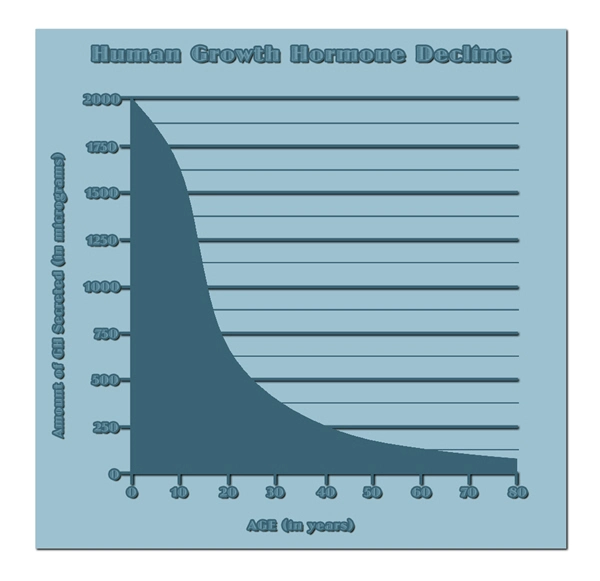Introduction
Premature ejaculation (PE) is a common sexual dysfunction among American males, impacting their quality of life and relationships. Recent studies have begun to explore the correlation between chronic illnesses and PE, suggesting that underlying health conditions may play a significant role in its prevalence. This article delves into the impact of various chronic illnesses on premature ejaculation, offering insights into how American men can address these intertwined health challenges.
Understanding Premature Ejaculation
Premature ejaculation is defined as ejaculation that occurs sooner than desired, either before or shortly after penetration, causing distress and frustration. It is one of the most prevalent sexual dysfunctions, affecting approximately 30% of American men. While psychological factors such as anxiety and stress are well-known contributors, the influence of chronic illnesses on PE has garnered increasing attention.
The Role of Chronic Illnesses
Chronic illnesses, such as diabetes, cardiovascular diseases, and neurological disorders, can significantly affect sexual health. These conditions often lead to physiological changes that can exacerbate sexual dysfunction, including PE. For instance, diabetes can cause nerve damage, which may impair the neural pathways responsible for controlling ejaculation. Similarly, cardiovascular diseases can reduce blood flow, impacting sexual performance and leading to PE.
Diabetes and Premature Ejaculation
Diabetes is a prevalent chronic condition among American males, with significant implications for sexual health. Studies have shown that diabetic men are at a higher risk of developing PE due to diabetic neuropathy, which affects nerve function. This neuropathy can disrupt the normal ejaculatory reflex, leading to premature ejaculation. Managing blood sugar levels and seeking early intervention for diabetic neuropathy can help mitigate these effects.
Cardiovascular Diseases and Sexual Function
Cardiovascular diseases, including hypertension and coronary artery disease, are another major health concern for American men. These conditions can lead to reduced blood flow to the penis, which is essential for maintaining erections and controlling ejaculation. Men with cardiovascular diseases are more likely to experience PE due to compromised vascular health. Adopting a heart-healthy lifestyle, including regular exercise and a balanced diet, can improve cardiovascular function and reduce the risk of PE.
Neurological Disorders and Ejaculatory Control
Neurological disorders, such as multiple sclerosis and Parkinson's disease, can also contribute to premature ejaculation. These conditions affect the central nervous system, which plays a crucial role in regulating sexual function. Damage to the nerves involved in the ejaculatory process can result in PE. Treatment of the underlying neurological disorder, along with targeted therapies for PE, can help manage symptoms and improve sexual health.
Psychological Impact of Chronic Illness
Beyond the physiological effects, chronic illnesses can also have a psychological impact on American males, exacerbating PE. The stress and anxiety associated with managing a chronic condition can heighten sexual performance anxiety, leading to premature ejaculation. Addressing these psychological factors through counseling and stress management techniques is essential for holistic treatment.
Management and Treatment Strategies
Effective management of PE in the context of chronic illness requires a multifaceted approach. This includes treating the underlying health condition, addressing psychological factors, and using specific therapies for PE. Medications such as selective serotonin reuptake inhibitors (SSRIs) and topical anesthetics can be effective in delaying ejaculation. Additionally, behavioral techniques, such as the stop-start method and the squeeze technique, can help improve ejaculatory control.
Conclusion
The relationship between chronic illnesses and premature ejaculation in American males is complex and multifaceted. By understanding the physiological and psychological impacts of conditions such as diabetes, cardiovascular diseases, and neurological disorders, men can take proactive steps to manage both their chronic illness and PE. A comprehensive approach that includes medical treatment, lifestyle changes, and psychological support is crucial for improving sexual health and overall well-being. As research continues to uncover the links between chronic illnesses and sexual dysfunction, American men can look forward to more targeted and effective treatments in the future.

- Eclipsing the Quick Fade: An In-depth Analysis of Premature Ejaculation [Last Updated On: February 25th, 2025] [Originally Added On: February 25th, 2025]
- Unlocking the Secrets Of Timing: A Deep-Dive Into The Science Behind Premature Ejaculation [Last Updated On: February 26th, 2025] [Originally Added On: February 26th, 2025]
- Unraveling the Mystery: A Deep Dive into Premature Ejaculation in American Males [Last Updated On: February 27th, 2025] [Originally Added On: February 27th, 2025]
- Unraveling The Enigma: Understanding The Triggers of Premature Ejaculation [Last Updated On: February 27th, 2025] [Originally Added On: February 27th, 2025]
- Unlocking the Mind: Unraveling the Psychological Underpinnings of Premature Ejaculation [Last Updated On: February 28th, 2025] [Originally Added On: February 28th, 2025]
- Understanding and Managing Accelerated Climax: Techniques to Prolong the Intimacy [Last Updated On: February 28th, 2025] [Originally Added On: February 28th, 2025]
- Decoding the Enigma: A Comprehensive Understanding of Premature Ejaculation [Last Updated On: March 1st, 2025] [Originally Added On: March 1st, 2025]
- Mastering intimate moments: A comprehensive outlook on addressing Premature Ejaculation [Last Updated On: March 2nd, 2025] [Originally Added On: March 2nd, 2025]
- Comprehensive Overview of Premature Ejaculation: Understanding Causes, Diagnosis, and Multifaceted Treatment Approaches [Last Updated On: March 3rd, 2025] [Originally Added On: March 3rd, 2025]
- Understanding and Managing Premature Ejaculation: Impacts and Treatments [Last Updated On: March 4th, 2025] [Originally Added On: March 4th, 2025]
- Understanding Premature Ejaculation: Causes, Impact, and Treatment Strategies [Last Updated On: March 5th, 2025] [Originally Added On: March 5th, 2025]
- Understanding and Managing Delayed Ejaculation: Causes, Strategies, and Treatments [Last Updated On: March 6th, 2025] [Originally Added On: March 6th, 2025]
- Mastering the Clock: Hormonal Influences on Ejaculatory Timing and Addressing Premature Ejaculation [Last Updated On: March 6th, 2025] [Originally Added On: March 6th, 2025]
- Understanding and Overcoming Performance Anxiety in Premature Ejaculation: Strategies for Improvement [Last Updated On: March 7th, 2025] [Originally Added On: March 7th, 2025]
- Understanding Premature Ejaculation: Causes, Treatments, and Lifestyle Strategies for Men's Sexual Health [Last Updated On: March 8th, 2025] [Originally Added On: March 8th, 2025]
- Natural Remedies for Premature Ejaculation: Effective Strategies for Delaying Ejaculation and Enhancing Endurance [Last Updated On: March 9th, 2025] [Originally Added On: March 9th, 2025]
- Navigating the Quick Fix Dilemma: Assessing ED Medications for Premature Ejaculation in American Males [Last Updated On: March 14th, 2025] [Originally Added On: March 12th, 2025]
- Understanding Premature Ejaculation: Facts, Myths, and Effective Management Strategies [Last Updated On: March 13th, 2025] [Originally Added On: March 13th, 2025]
- Mastering Your Heartbeat: Techniques for American Men to Gain Control Over Rapid Heart Rhythms [Last Updated On: March 13th, 2025] [Originally Added On: March 13th, 2025]
- Enhancing Intimacy: The Role of Mindfulness in Managing Premature Ejaculation [Last Updated On: March 15th, 2025] [Originally Added On: March 15th, 2025]
- Managing Premature Ejaculation in Casual Relationships: Strategies for American Males [Last Updated On: March 17th, 2025] [Originally Added On: March 17th, 2025]
- Nervous System's Role in Ejaculation and Managing Premature Ejaculation in American Males [Last Updated On: March 17th, 2025] [Originally Added On: March 17th, 2025]
- Countdown Challenge: Exercises to Combat Premature Ejaculation in American Men [Last Updated On: March 18th, 2025] [Originally Added On: March 18th, 2025]
- Anxiety's Role in Premature Ejaculation: Causes and Management Strategies [Last Updated On: March 19th, 2025] [Originally Added On: March 19th, 2025]
- Understanding and Managing Premature Ejaculation: Causes, Treatments, and Holistic Approaches [Last Updated On: March 19th, 2025] [Originally Added On: March 19th, 2025]
- Premature Ejaculation's Broad Impact on American Men's Social and Professional Lives [Last Updated On: March 19th, 2025] [Originally Added On: March 19th, 2025]
- Effective Partner Communication Strategies for Managing Premature Ejaculation in American Males [Last Updated On: March 21st, 2025] [Originally Added On: March 21st, 2025]
- Lifestyle Strategies for American Men to Manage Premature Ejaculation Effectively [Last Updated On: March 21st, 2025] [Originally Added On: March 21st, 2025]
- Understanding and Managing Premature Ejaculation: Strategies for American Males [Last Updated On: March 21st, 2025] [Originally Added On: March 21st, 2025]
- Premature Ejaculation: Causes, Diagnosis, and Effective Treatment Strategies [Last Updated On: March 22nd, 2025] [Originally Added On: March 22nd, 2025]
- Managing Premature Ejaculation: Effective Power of Pause Techniques for American Men [Last Updated On: March 22nd, 2025] [Originally Added On: March 22nd, 2025]
- Managing Premature Ejaculation: A Patient's Journey to Recovery and Hope [Last Updated On: March 22nd, 2025] [Originally Added On: March 22nd, 2025]
- Managing Premature Ejaculation: New Research and Comprehensive Treatment Approaches [Last Updated On: March 22nd, 2025] [Originally Added On: March 22nd, 2025]
- Mastering Premature Ejaculation: Techniques, Treatments, and Lifestyle Strategies for American Males [Last Updated On: March 23rd, 2025] [Originally Added On: March 23rd, 2025]
- Managing Premature Ejaculation: Stress Reduction Techniques for American Males [Last Updated On: March 23rd, 2025] [Originally Added On: March 23rd, 2025]
- Understanding and Managing Premature Ejaculation: Physiological, Psychological, and Therapeutic Approaches [Last Updated On: March 23rd, 2025] [Originally Added On: March 23rd, 2025]
- Premature Ejaculation: Emotional, Financial Impacts and the Need for Comprehensive Support [Last Updated On: March 23rd, 2025] [Originally Added On: March 23rd, 2025]
- Effective Non-Pharmacological Strategies for Managing Premature Ejaculation in American Men [Last Updated On: March 23rd, 2025] [Originally Added On: March 23rd, 2025]
- Psychological Strategies to Manage Premature Ejaculation in American Men [Last Updated On: March 23rd, 2025] [Originally Added On: March 23rd, 2025]
- Cognitive Behavioral Therapy: A Promising Treatment for Premature Ejaculation in American Men [Last Updated On: March 24th, 2025] [Originally Added On: March 24th, 2025]
- Premature Ejaculation: Understanding, Treating, and Overcoming the Stigma in American Men [Last Updated On: March 24th, 2025] [Originally Added On: March 24th, 2025]
- Restorative Sleep Boosts Sexual Stamina, Helps Manage Premature Ejaculation in American Males [Last Updated On: March 24th, 2025] [Originally Added On: March 24th, 2025]
- Understanding and Overcoming Premature Ejaculation: A Holistic Approach for American Men [Last Updated On: March 24th, 2025] [Originally Added On: March 24th, 2025]
- Mastering Foreplay to Manage Premature Ejaculation in American Men [Last Updated On: March 24th, 2025] [Originally Added On: March 24th, 2025]
- Overcoming Premature Ejaculation: Success Stories and Effective Strategies [Last Updated On: March 24th, 2025] [Originally Added On: March 24th, 2025]
- Fitness Regimen Enhances Sexual Health, Control Over Premature Ejaculation in American Males [Last Updated On: March 24th, 2025] [Originally Added On: March 24th, 2025]
- Managing Premature Ejaculation: Causes, Strategies, and Support for American Males [Last Updated On: March 24th, 2025] [Originally Added On: March 24th, 2025]
- Effective Behavioral Techniques for Managing Premature Ejaculation in American Males [Last Updated On: March 24th, 2025] [Originally Added On: March 24th, 2025]
- Managing Premature Ejaculation: The Power of Open Communication in Couples [Last Updated On: March 25th, 2025] [Originally Added On: March 25th, 2025]
- Dietary Nutrients' Role in Managing Premature Ejaculation: A Holistic Approach [Last Updated On: March 25th, 2025] [Originally Added On: March 25th, 2025]
- Managing Premature Ejaculation: Strategies and Support for American Men [Last Updated On: March 25th, 2025] [Originally Added On: March 25th, 2025]
- Overcoming Premature Ejaculation: Enhancing Intimacy and Emotional Bonds [Last Updated On: March 25th, 2025] [Originally Added On: March 25th, 2025]
- Understanding and Managing Premature Ejaculation: Causes, Impacts, and Treatments [Last Updated On: March 25th, 2025] [Originally Added On: March 25th, 2025]
- Pause Technique: Managing Premature Ejaculation in American Males [Last Updated On: March 26th, 2025] [Originally Added On: March 26th, 2025]
- Managing Premature Ejaculation: A Holistic Approach for American Men [Last Updated On: March 26th, 2025] [Originally Added On: March 26th, 2025]
- Premature Ejaculation: Global Impact, Treatment Options, and Raising Awareness in American Men [Last Updated On: March 26th, 2025] [Originally Added On: March 26th, 2025]
- Digital Innovations for Managing Premature Ejaculation in American Men [Last Updated On: March 26th, 2025] [Originally Added On: March 26th, 2025]
- Medications Impacting Ejaculatory Speed in American Males with Premature Ejaculation [Last Updated On: March 27th, 2025] [Originally Added On: March 27th, 2025]
- Understanding Premature Ejaculation: Biology, Diagnosis, and Treatment Options [Last Updated On: March 27th, 2025] [Originally Added On: March 27th, 2025]
- Biofeedback: A Non-Invasive Solution for Premature Ejaculation in American Men [Last Updated On: March 27th, 2025] [Originally Added On: March 27th, 2025]
- Managing Premature Ejaculation: Holistic Approaches for American Men [Last Updated On: March 27th, 2025] [Originally Added On: March 27th, 2025]
- Mastering Ejaculatory Control: Understanding and Overcoming Premature Ejaculation in American Men [Last Updated On: March 27th, 2025] [Originally Added On: March 27th, 2025]
- Managing Premature Ejaculation Across Different Age Groups in American Men [Last Updated On: March 27th, 2025] [Originally Added On: March 27th, 2025]
- Herbal Remedies for Premature Ejaculation: A Holistic Approach for American Men [Last Updated On: March 28th, 2025] [Originally Added On: March 28th, 2025]
- Enhancing Sexual Stamina: Exercises and Techniques for Premature Ejaculation Management [Last Updated On: March 28th, 2025] [Originally Added On: March 28th, 2025]
- Expert Insights on Causes, Treatments, and Coping with Premature Ejaculation [Last Updated On: March 28th, 2025] [Originally Added On: March 28th, 2025]
- Couples' Collaborative Strategies for Managing Premature Ejaculation [Last Updated On: March 28th, 2025] [Originally Added On: March 28th, 2025]
- Managing Premature Ejaculation: Psychological, Biological, and Behavioral Strategies for American Men [Last Updated On: March 29th, 2025] [Originally Added On: March 29th, 2025]
- Managing Premature Ejaculation: Self-Help Resources for American Men [Last Updated On: March 29th, 2025] [Originally Added On: March 29th, 2025]
- Managing Premature Ejaculation: Strategies for American Men's Sexual Health [Last Updated On: March 30th, 2025] [Originally Added On: March 30th, 2025]
- Understanding and Treating Premature Ejaculation in American Men: Causes and Solutions [Last Updated On: March 31st, 2025] [Originally Added On: March 31st, 2025]
- Effective Treatments for Premature Ejaculation in American Males: A Comprehensive Overview [Last Updated On: April 2nd, 2025] [Originally Added On: April 2nd, 2025]
- Exploring the Interconnected Dynamics of ED and PE in American Men [Last Updated On: April 2nd, 2025] [Originally Added On: April 2nd, 2025]
- American Men's Journey to Overcome Premature Ejaculation: Strategies and Success Stories [Last Updated On: April 2nd, 2025] [Originally Added On: April 2nd, 2025]
- Mastering Controlled Breathing to Manage Premature Ejaculation in American Men [Last Updated On: April 3rd, 2025] [Originally Added On: April 3rd, 2025]
- Testosterone's Impact on Ejaculatory Control and Premature Ejaculation in American Males [Last Updated On: April 5th, 2025] [Originally Added On: April 5th, 2025]
- Premature Ejaculation and Prostate Health: Understanding Links and Managing Symptoms [Last Updated On: April 8th, 2025] [Originally Added On: April 8th, 2025]
- Understanding and Treating Premature Ejaculation: A Comprehensive Guide [Last Updated On: April 9th, 2025] [Originally Added On: April 9th, 2025]
- Emotional Well-Being's Impact on Premature Ejaculation in American Males [Last Updated On: April 10th, 2025] [Originally Added On: April 10th, 2025]
- Managing Premature Ejaculation: Causes, Techniques, and Treatments for American Men [Last Updated On: April 10th, 2025] [Originally Added On: April 10th, 2025]



List of USA state clinics - click a flag below for blood testing clinics.
Word Count: 628


















































